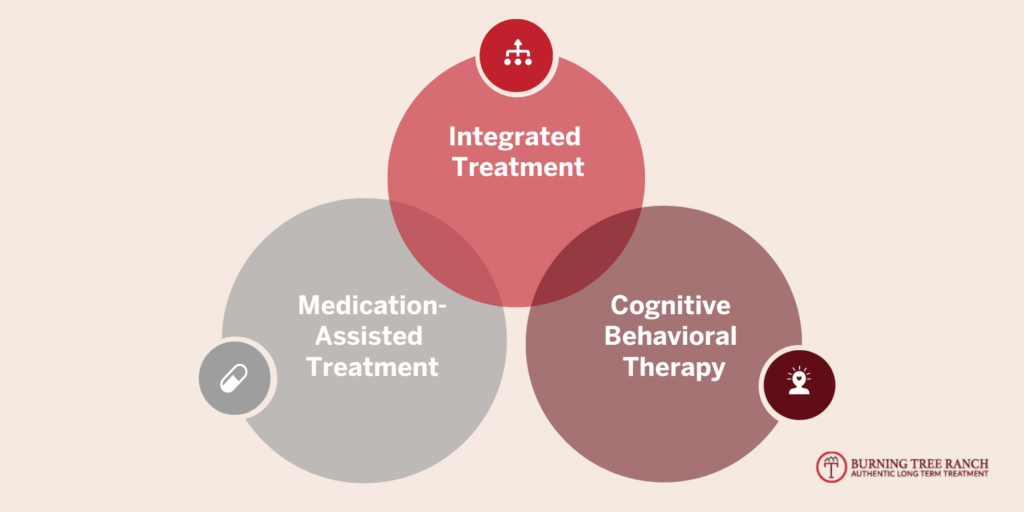The prevalence of co-occurring disorders, also referred to as dual diagnosis, are more common than one might expect. Simultaneously grappling with both a mental health disorder and a substance use disorder can be exceptionally challenging, but an appropriate and comprehensive assessment can serve as the pivotal first step toward effective treatment and eventual recovery.
In this article, we’re going to dive deep into the world of co-occurring disorders, their assessments, and their implications, shedding light on how to approach this pressing issue effectively.
The Intricate Nature of Co-Occurring Disorders
Co-occurring disorders exhibit an intricate relationship that often complicates their diagnosis and treatment. Their nature is symbiotic and reciprocal, meaning a mental health disorder and a substance use disorder can feed off each other, each one exacerbating the symptoms of the other. Someone struggling with a mental health issue may turn to drugs or alcohol as a form of self-medication, only to find that their psychological state worsens due to substance abuse.
On the other hand, a person addicted to substances may develop mental health issues due to their addiction’s physiological and psychological impact. The cycle often continues, making it difficult to discern the primary disorder, which further complicates treatment approaches. Understanding this interplay is essential in managing co-occurring disorders effectively.

Burning Tree Ranch Offers the Best Long Term Dual Diagnosis Treatment for the Chronic Relapser
Understanding the Prevalence of Co-Occurring Disorders
Contrary to the misconceptions that these cases are rare, co-occurring disorders, in fact, affect a substantial portion of the population. For example, research from 2019 disclosed that in the United States, about 9.5 million adults, which represents nearly 3.8% of the adult populace, are dealing with these dual diagnoses. Such statistics underscore the importance of increasing awareness, enhancing diagnosis procedures, and improving treatment modalities. By acknowledging the commonality of co-occurring disorders, we can better strategize public health initiatives and dedicate the necessary resources to address this complex issue effectively.
The Importance of Comprehensive Assessments
The management of co-occurring disorders fundamentally hinges on the assessment stage. Without a comprehensive assessment, getting to the heart of the problem becomes significantly challenging, determining an accurate diagnosis and ultimately formulating a suitable treatment plan designed to address the individual’s unique needs. It is akin to navigating through unchartered territory without a map.
Identifying Symptoms and Behavioral Patterns
A comprehensive assessment is designed to meticulously explore the spectrum of symptoms and recurring patterns in an individual’s behavior. This process is akin to a thorough investigation wherein the clinician takes on the role of a detective. They carefully dissect the individual’s historical timeline concerning substance use, mental health fluctuations, and any noticeable shifts in behavioral patterns. This exploration can often uncover invaluable clues that contribute to forming a more rounded and accurate view of the individual’s health.
The Utilization of Diagnostic Tools and Procedures
Various diagnostic tools and procedures are designed specifically to support the assessment process of co-occurring disorders. This suite of diagnostic resources includes but is not limited to, in-depth psychiatric interviews, thorough physical examinations, and a range of laboratory tests designed to detect physiological changes that may correlate with substance use or mental health conditions.
Furthermore, there are standardized self-report questionnaires, including the Mental Health Screening Form-III (MHSF-III) and the Simple Screening Instrument for Substance Abuse (SSI-SA). These instruments offer the ability for individuals to provide personal insights about their conditions. Their responses can reveal a depth of information, often unattainable through clinical observations alone, providing a more holistic view of their condition.
Digging Deeper: Uncovering the Root Causes
A fundamental aspect of the comprehensive assessment lies in its ability to dig deep and reveal the underlying causes of the co-occurring disorders. This process involves an investigation that seeks to answer a critical question: Did the substance abuse instigate the mental health issue, or was the mental health issue a precursor to the substance abuse? Unraveling this sequence is essential as it can significantly influence the direction and approach of the treatment plan.
Understanding the root causes can provide a lens through which the cyclical nature of these disorders can be viewed, thus allowing clinicians to disrupt this cycle effectively. Therefore, a comprehensive assessment not only evaluates the presence of co-occurring disorders but also provides the much-needed insight that can directly steer the course of therapeutic interventions toward successful recovery.
Treatment Approaches for Co-Occurring Disorders

There’s no doubt that tackling co-occurring disorders is a complex task, largely due to the intricately interwoven aspects of mental health and substance use disorders. However, several evidence-based treatment modalities have been recognized for their effectiveness in managing these conditions. Let’s delve into these methodologies with a more detailed lens.
Integrated Treatment: A Synergistic Approach
An integrated treatment represents a cohesive and concerted approach where a unified team of clinicians simultaneously provides interventions targeting mental health and substance abuse. This strategy brings a unique perspective to the treatment process, essentially viewing the person as a whole rather than as separate disorders requiring isolated treatments.
The promise of integrated treatment lies in its ability to provide consistent, coordinated care, eliminating potential gaps or conflicts between different treatment approaches. This methodology optimizes therapeutic efficiency, and fosters improved patient outcomes by ensuring that treatment for both disorders progresses in tandem.
Cognitive Behavioral Therapy: Rewiring Thought Processes
Cognitive Behavioral Therapy (CBT) is a time-tested, widely adopted modality in treating co-occurring disorders. At its core, CBT seeks to effect change by helping individuals alter their thought patterns and behaviors associated with substance use and mental health symptoms.
In the context of co-occurring disorders, CBT can be instrumental in helping individuals understand the connection between their thoughts, feelings, and behaviors. This therapy helps individuals identify negative thought patterns that may contribute to their substance use or exacerbate their mental health symptoms. By teaching individuals to replace these negative thoughts with more positive, realistic ones, CBT provides valuable tools to manage their symptoms, cope with stress, and lead healthier lives.
Medication-Assisted Treatment: A Balanced Combination
Medication-Assisted Treatment (MAT) is another crucial strategy in managing co-occurring disorders. As the name suggests, MAT leverages the benefits of approved medications used in synergy with counseling and behavioral therapies. This comprehensive approach offers a balanced treatment plan designed to address the multidimensional aspects of co-occurring disorders.
MAT addresses the physical components of addiction, playing a significant role in curbing cravings and mitigating withdrawal symptoms linked with substance misuse. When combined with counseling and behavioral therapies that address the psychological components of co-occurring disorders, MAT can provide a holistic and effective treatment strategy, paving the way for long-term recovery.
Dual Diagnosis Treatment at Burning Tree Ranch
Struggling with co-occurring disorders doesn’t mean you have to face your challenges alone. At Burning Tree Ranch, a renowned Dual Diagnosis Treatment Center, we’re here to help you navigate your journey to recovery. Our specialized programs are crafted to treat mental health and substance use disorders simultaneously, offering a comprehensive approach to healing and wellness. Our dedicated team employs evidence-based therapeutic methods tailored to your individual needs. With Burning Tree Ranch, you’re not just a patient but part of a supportive community committed to your lasting recovery. Don’t let co-occurring disorders define you. Take the first step today. Reach out to Burning Tree Ranch, and together, let’s chart a path to a healthier, brighter future.





